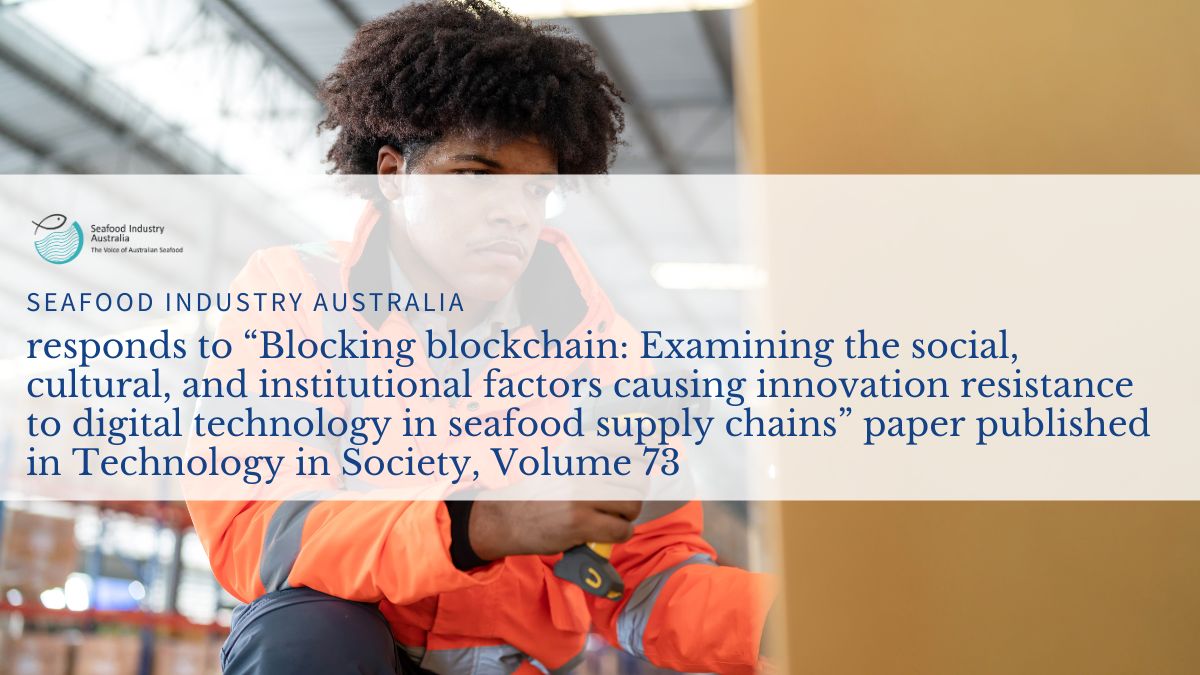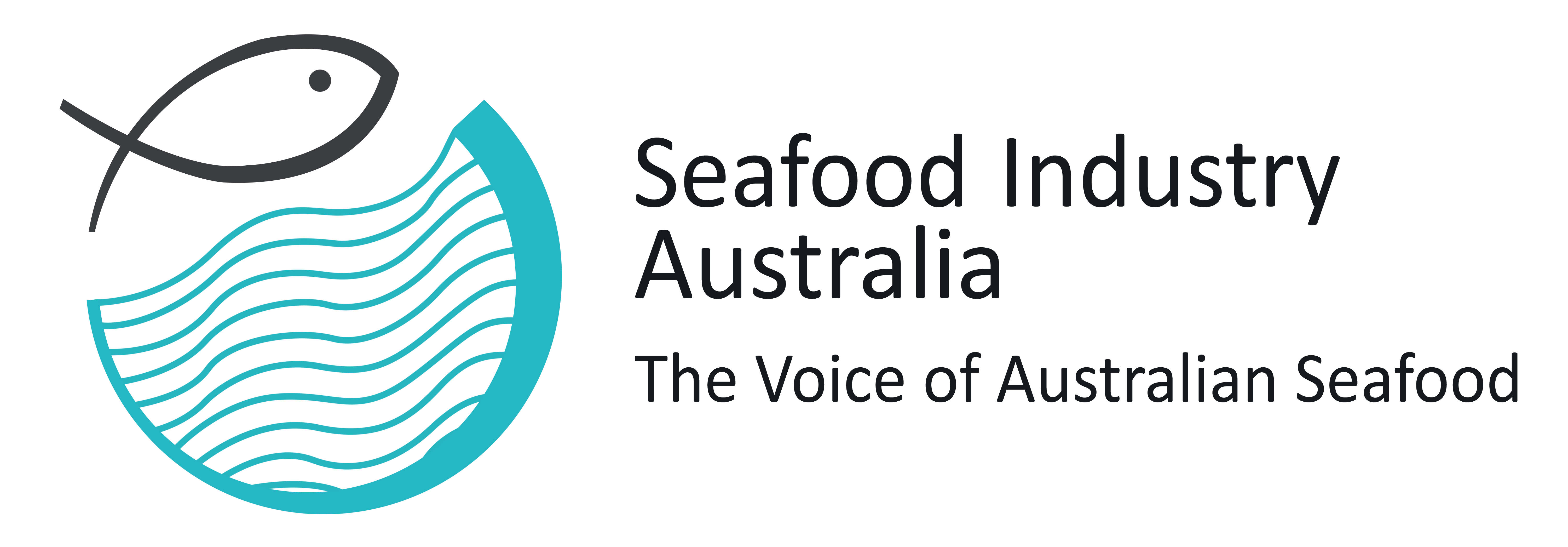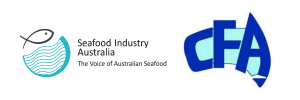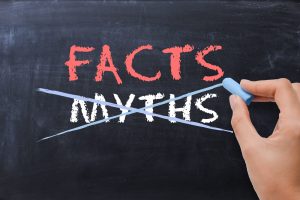
Seafood Industry Australia responds to “Blocking blockchain: Examining the social, cultural, and institutional factors causing innovation resistance to digital technology in seafood supply chains” paper published in Technology in Society, Volume 73
Seafood Industry Australia (SIA), the national peak-body representing the Australian seafood industry, has responded to the release of Benjamin S. Thompson and Sascha Rust’s “Blocking blockchain: Examining the social, cultural, and institutional factors causing innovation resistance to digital technology in seafood supply chains” paper published in Technology in Society (Volume 73, May 2023, 102235).
“First and foremost, the origin of seafood being sold or served in a retail or hospitality setting must always be available for all food safety purposes,” SIA CEO Veronica Papacosta said.
“The Australian seafood industry is deeply committed to discussions on how we can further our use of traceability and blockchain technology. There are a number of retailers, both in Victoria and New South Wales, holding third-party chain of custody certification meaning everything sold can be traced back to a particular boat, and its journey through the supply chain. In addition, SIA has a project underway with OpenSC and Laava looking at how we can develop and implement a unique identifier on seafood packaging to verify and authenticate the product’s origin using blockchain. This is currently focused on overseas markets, as this is actually where we see high-levels of counterfeit products being produced.
“The industry is actively involved in discussions on how we can continue to embrace technology and further develop supply chain transparency. Currently, the seafood industry upholds the industry standard. Consumers are able to identify a product’s species, confirm its origin in retail settings, and soon in a hospitality setting. Just like you can with any other protein source. This paper highlights the importance of purchasing your seafood through a registered and accredited seafood trader like the Melbourne Seafood Centre, Sydney Fish Market, the co-op network, or a trusted retailer.
“Australia’s commercial fishers adhere to extremely strict regulations and monitoring to ensure we maintain healthy stocks and act in accordance with the law. There are prescriptive management plans, quotas and licences in place controlling what can be caught, where, when and how.
“It is mandatory for Australia’s Commonwealth commercial fishers to be covered by mandatory Vessel Monitoring Systems (VMS) which is essentially a GPS locator that shows where all of Australia’s commercial fishing boats are in real-time to ensure boats remain in the areas they are permitted. In addition, the Australian seafood industry is covered by compulsory electronic monitoring (e-monitoring) which is a system of video cameras and sensors capable of monitoring and recording fishing activities, which can be reviewed later to verify what fishers report in fishing logbooks. Finally, all fish caught by Australia’s commercial fishers must be tracked and accounted for in their sales data.
“We don’t want to obscure what is really happening at sea, and we cannot. As an industry we value being transparent and accountable for our actions.
“Sadly, the researchers have lost an opportunity for what could have been a meaningful engagement with industry in favour of shock and awe.
“We’d like to see the methodology the researchers used, and know more about who was spoken to and where they sit in the industry to better understand the context of these claims.
“The broad-stroke statements made in this paper unjustly damage the livelihood, reputation and hard work of tens of thousands of hard working Australians, and have documented and broad reaching impacts on the mental health of our sector.
“The Australian seafood industry has a zero tolerance for any illegal activity. As an industry our priority is the ocean. It’s our future and the future of generations to come.”
<ENDS>
For more information or to organise an interview please contact
SIA Communications and Public Affairs manager Jessica McInerney
E: [email protected] M: 0420 695 431



